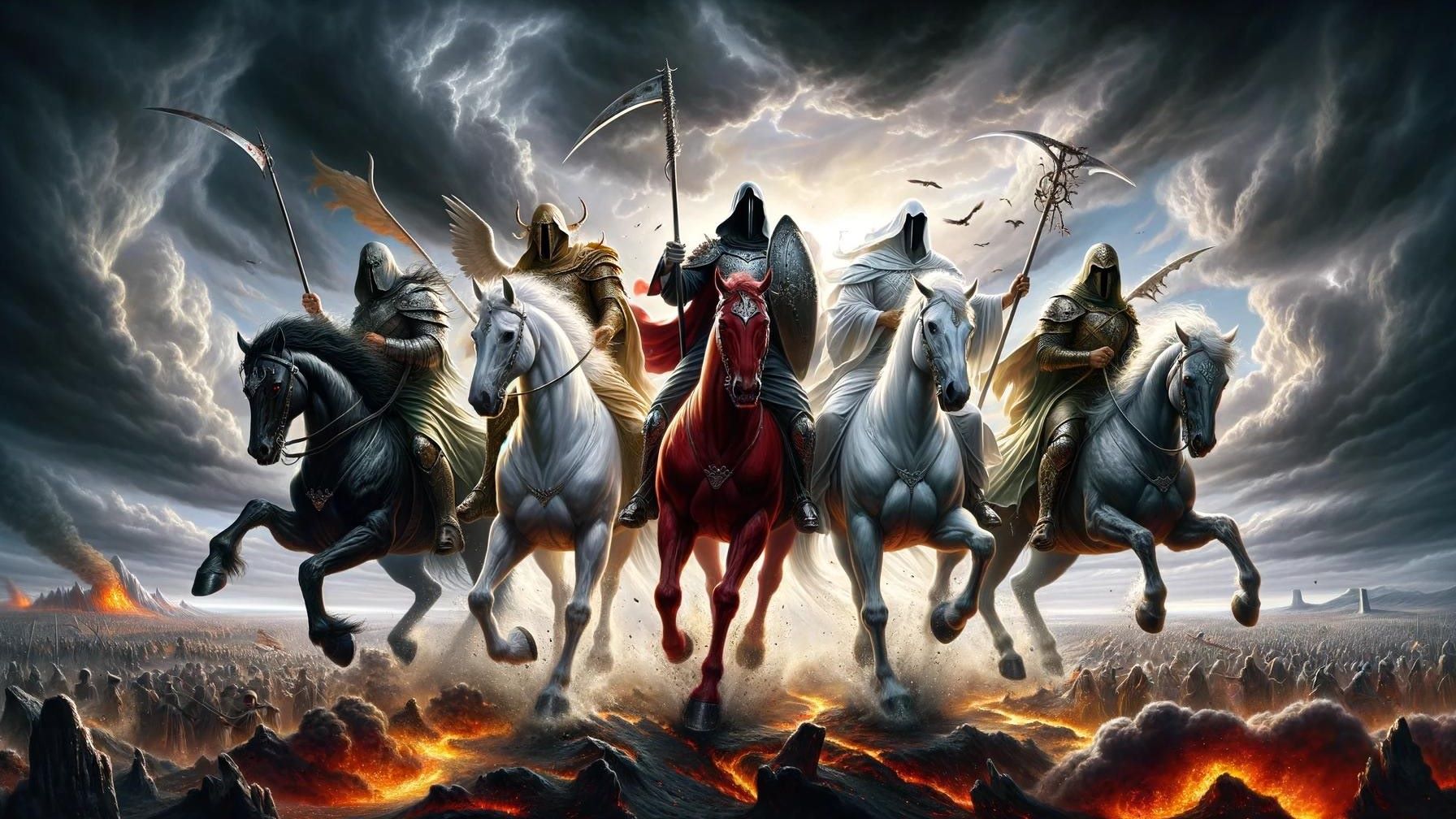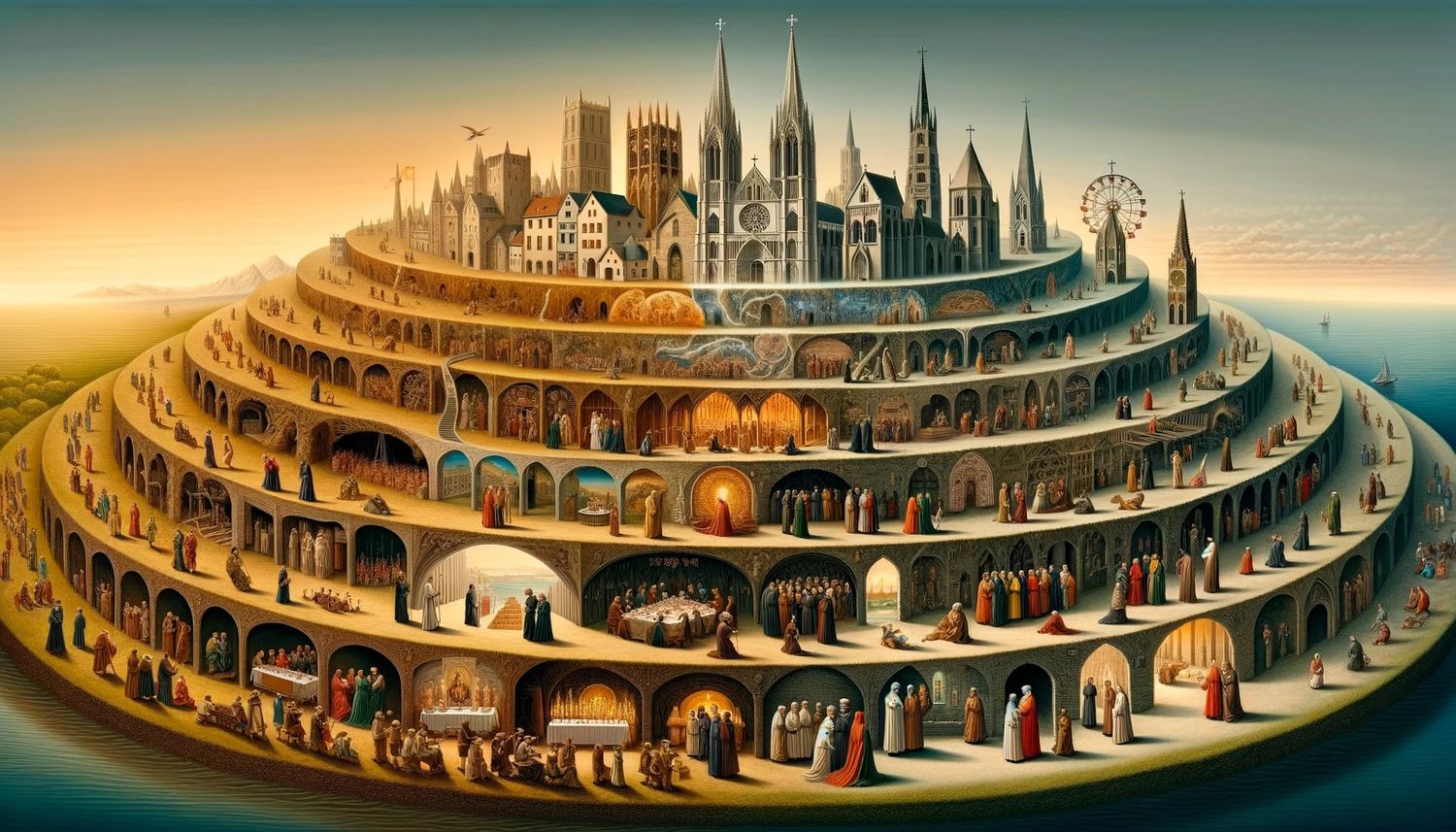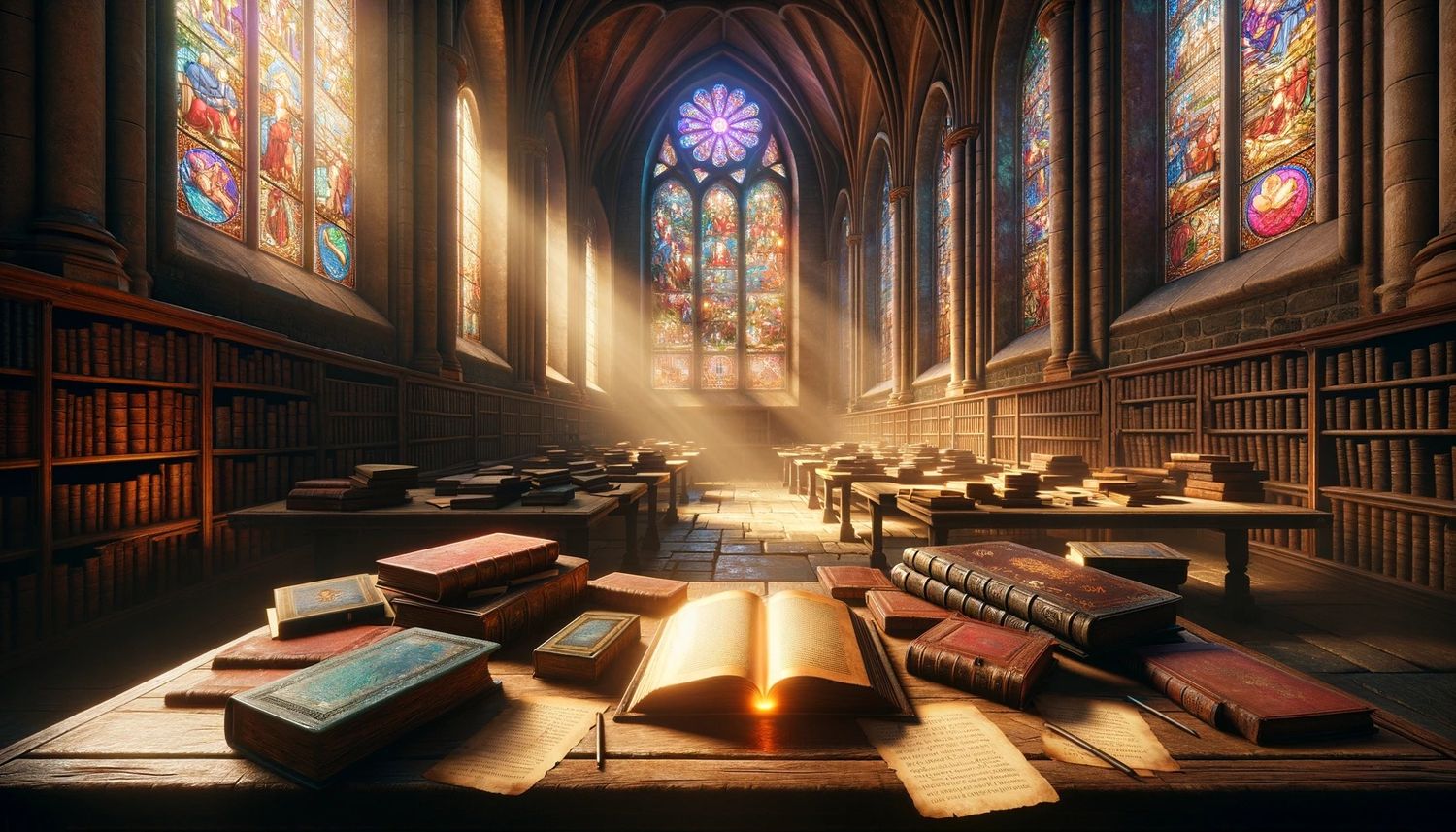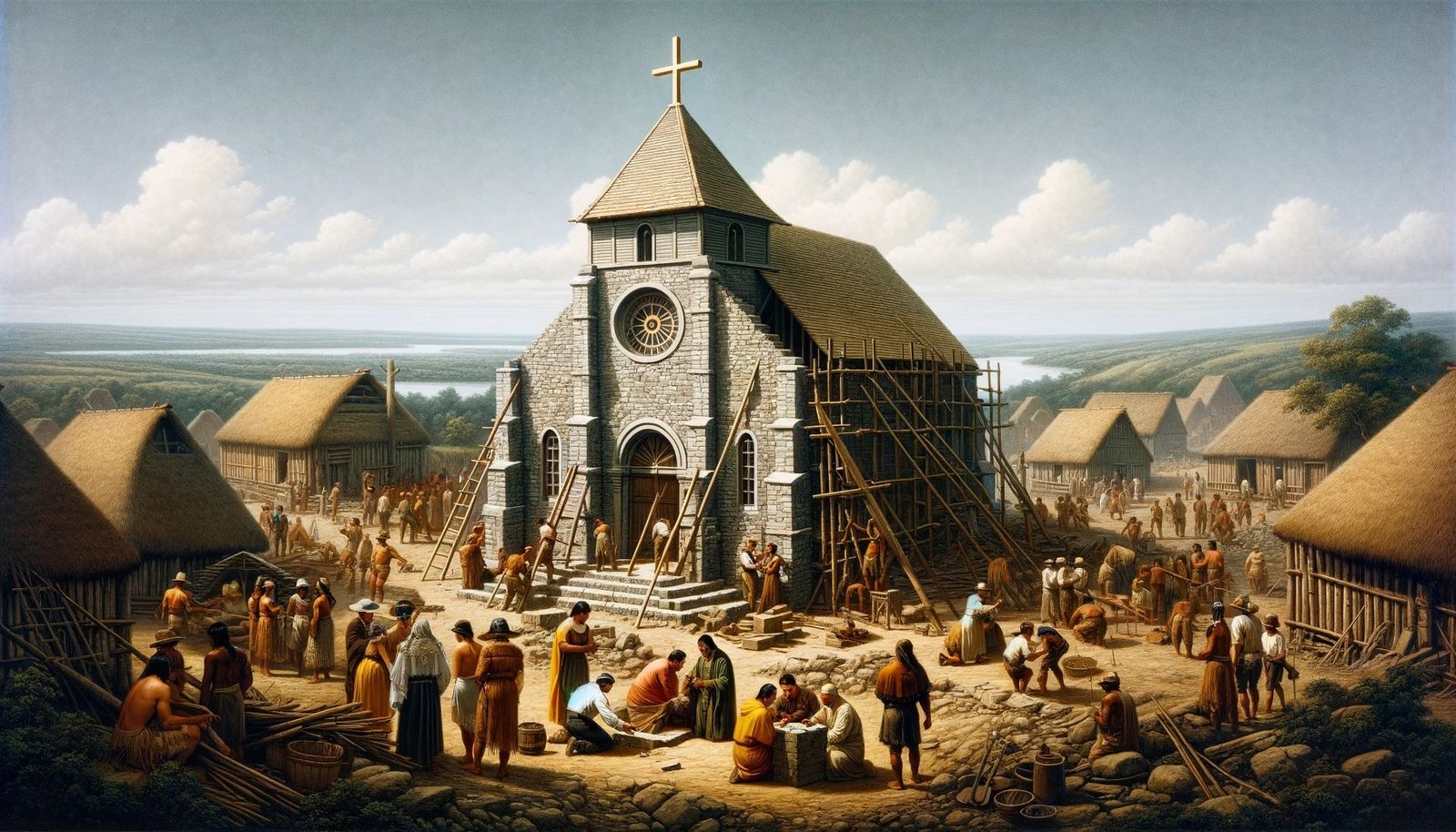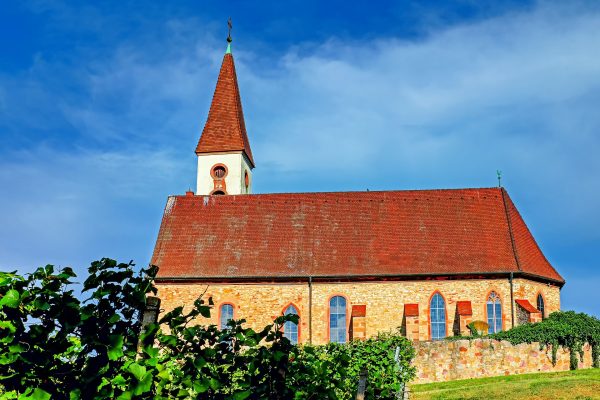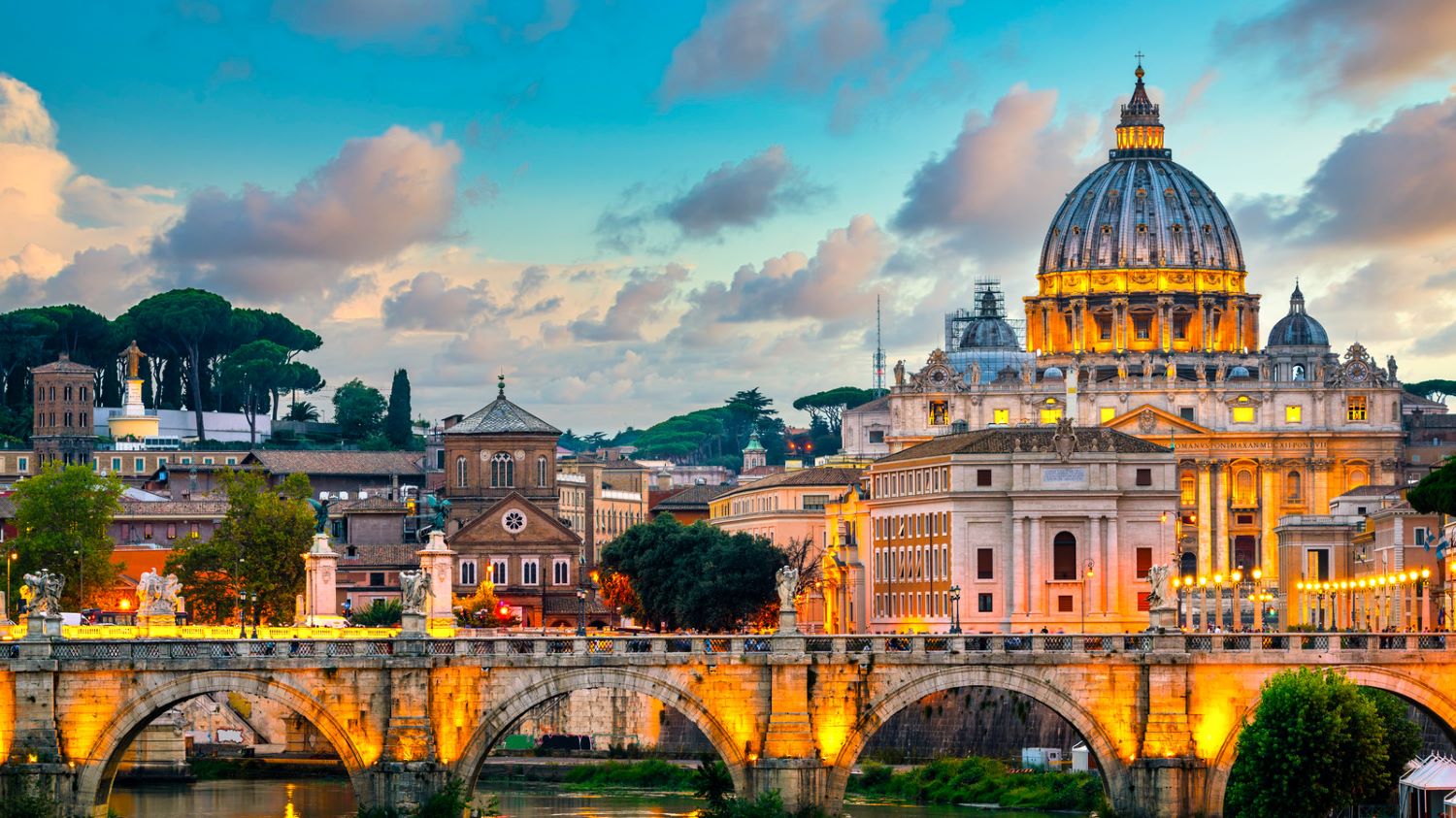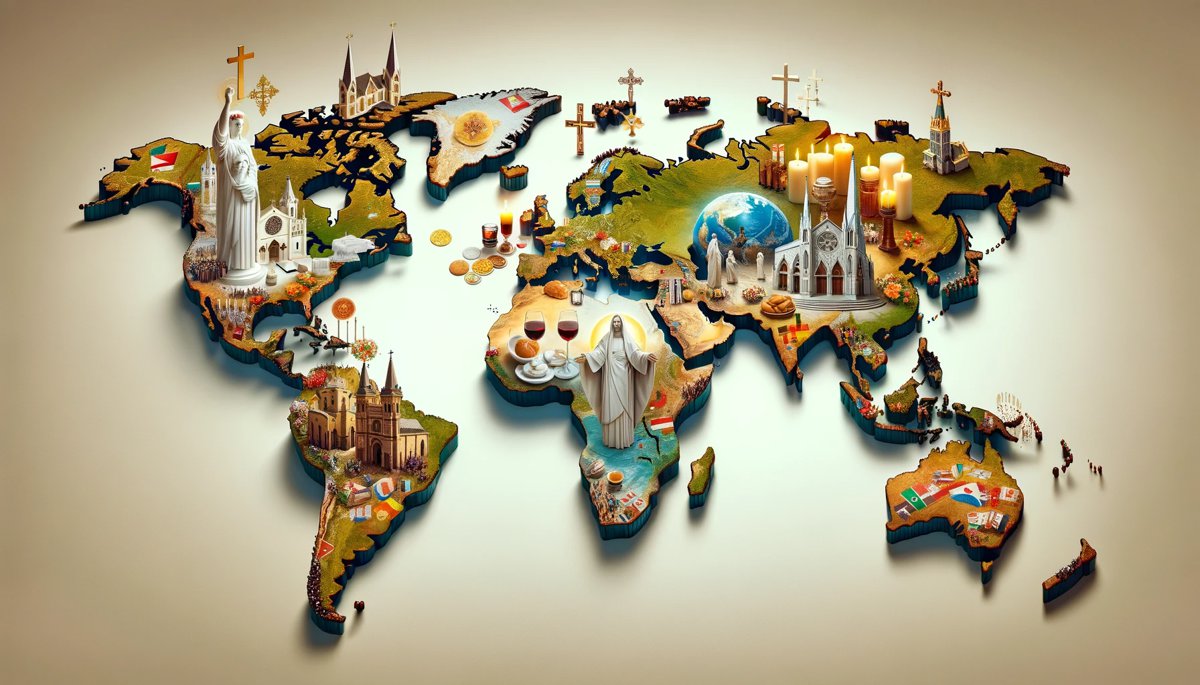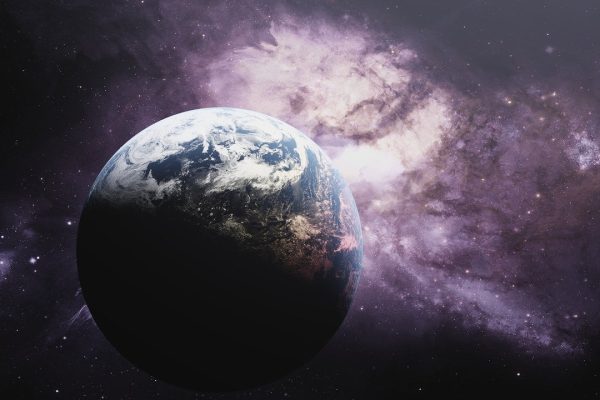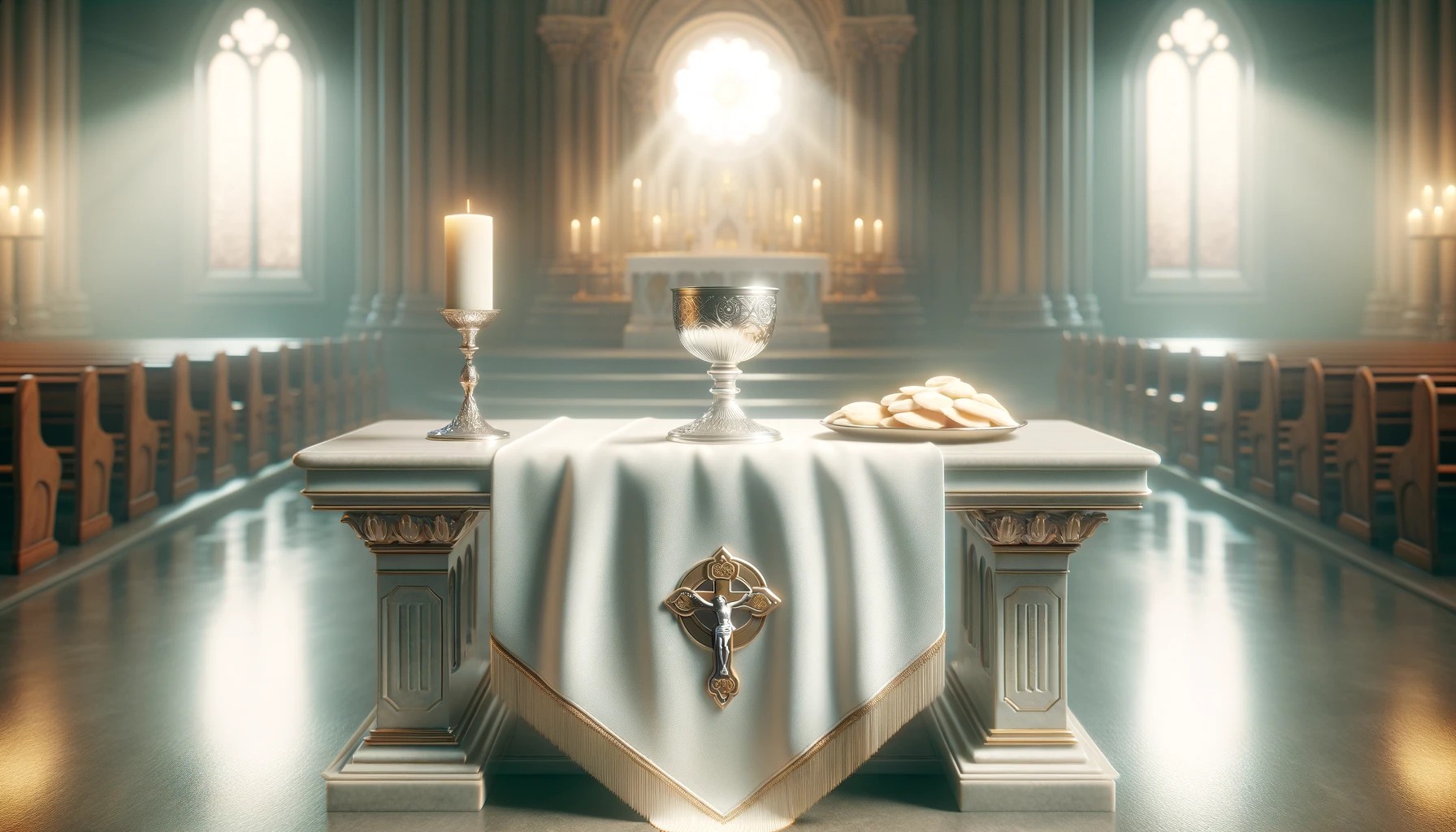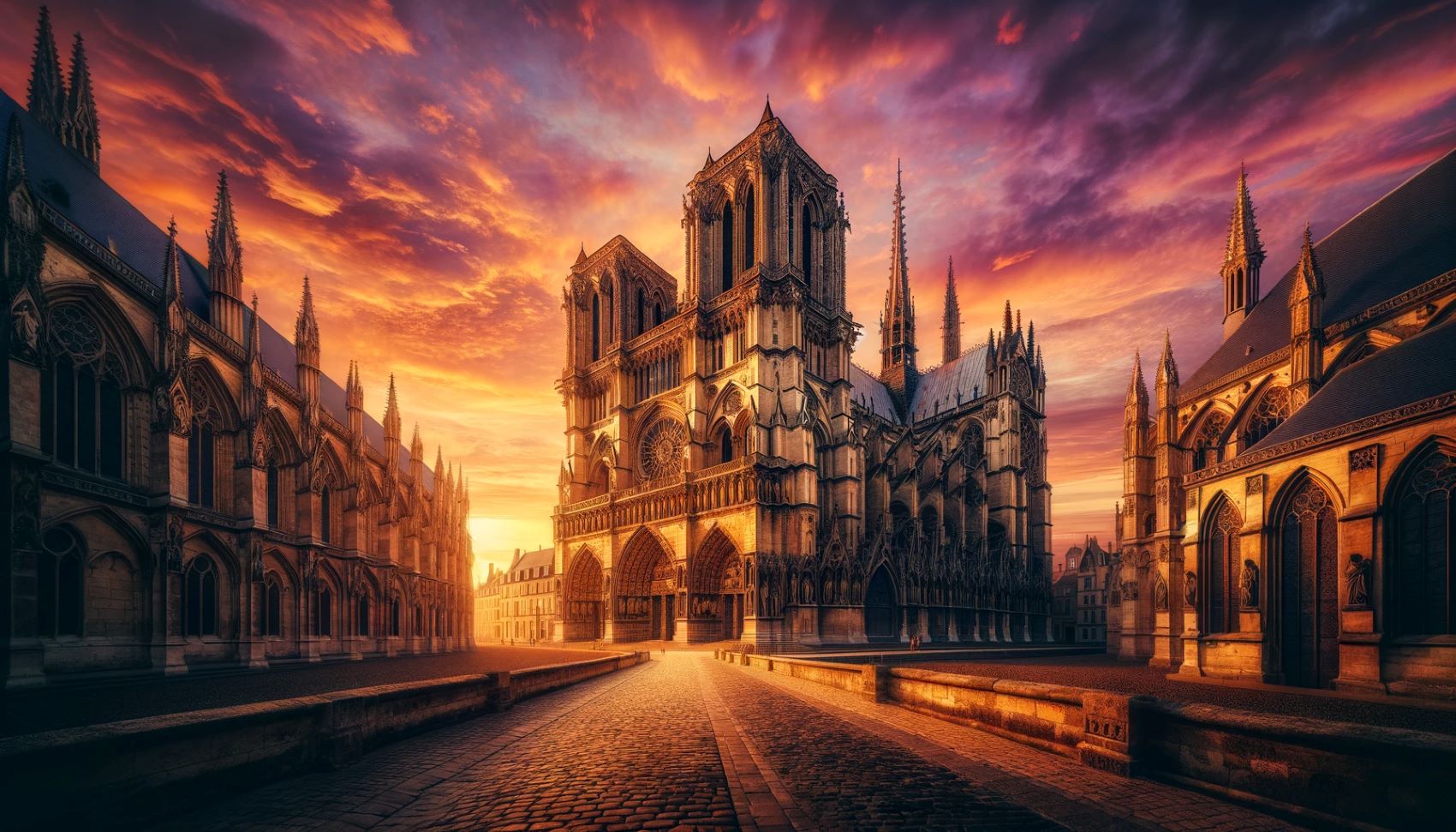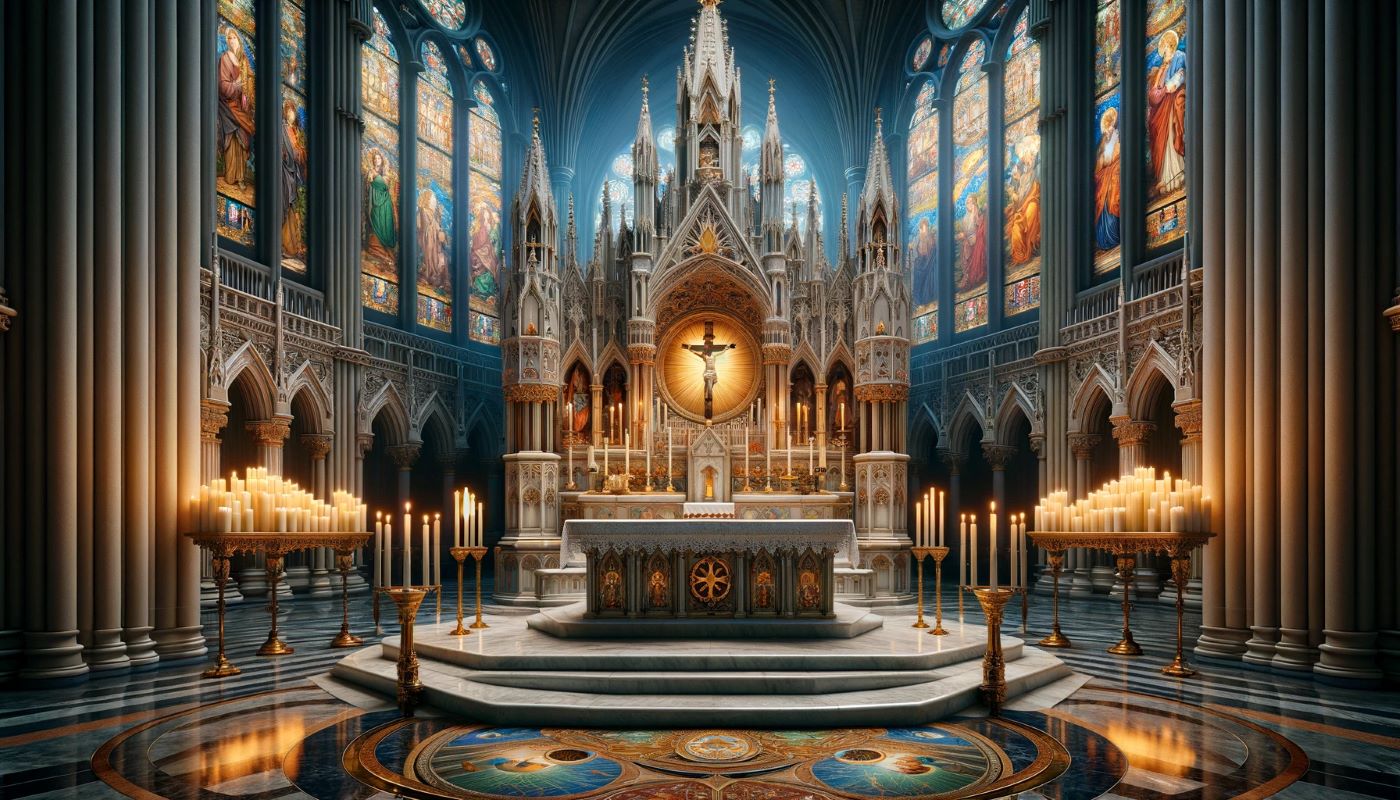Home>Theology and Spirituality>What Is The End Of The World Called In Catholicism
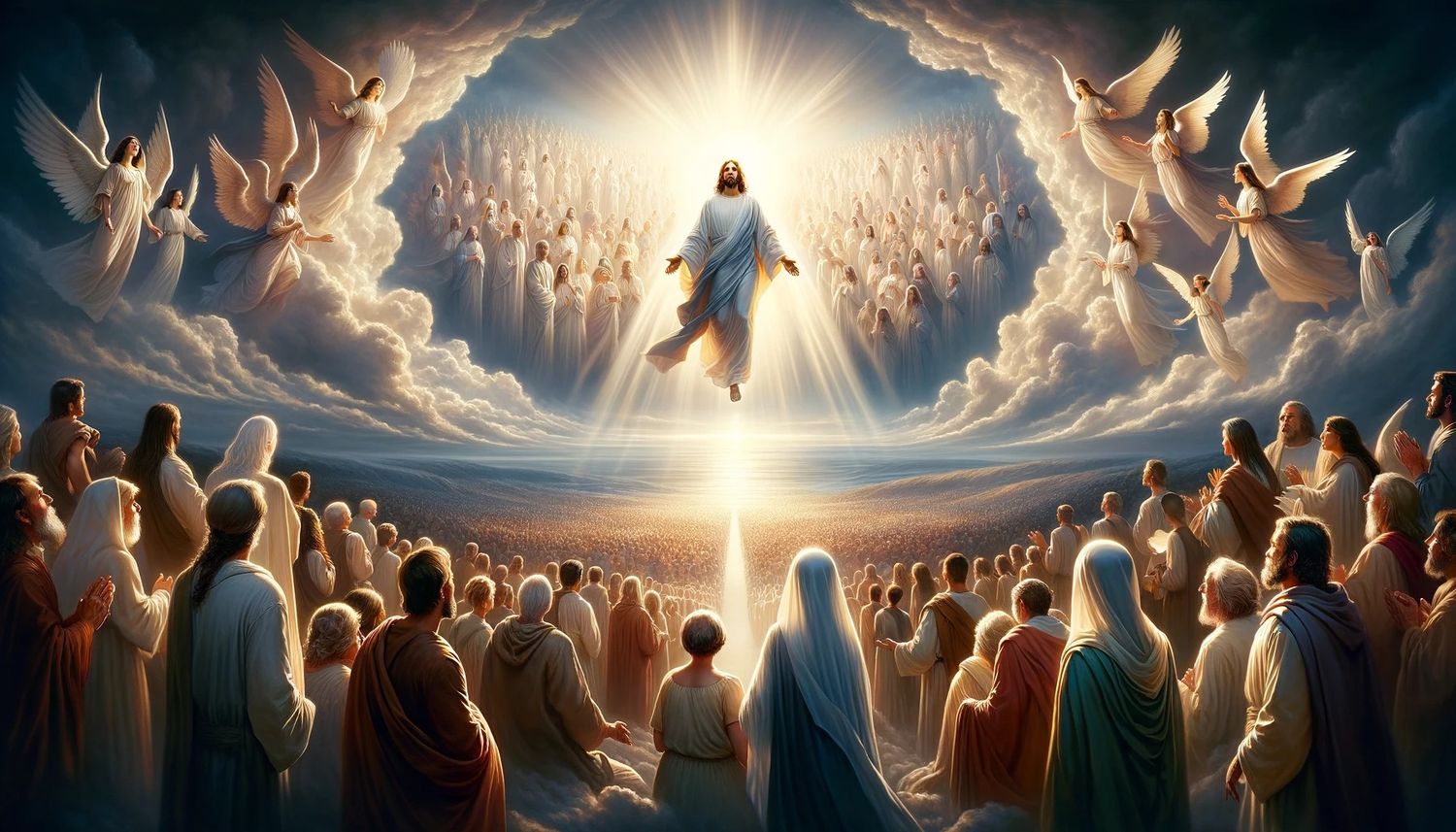

Theology and Spirituality
What Is The End Of The World Called In Catholicism
Published: February 18, 2024
Peter Smith, Editorial Director at Christian.net, combines deep insights into faith, politics, and culture to lead content creation that resonates widely. Awarded for his contributions to religious discourse, he previously headed a major organization for religious communicators, enhancing dialogue on faith's societal impacts.
Discover the significance of the end of the world in Catholic theology and spirituality. Explore the beliefs and teachings surrounding this concept.
(Many of the links in this article redirect to a specific reviewed product. Your purchase of these products through affiliate links helps to generate commission for Christian.net, at no extra cost. Learn more)
Table of Contents
Introduction
The concept of the end of the world has been a subject of fascination and contemplation for centuries. In Catholicism, this profound topic is intertwined with theological beliefs, prophecies, and eschatological teachings. The teachings of the Catholic Church offer a rich tapestry of insights into what the end of the world signifies and what it entails for humanity.
Exploring the Catholic perspective on the end of the world provides a glimpse into the profound mysteries of faith, offering a unique vantage point from which to contemplate the ultimate destiny of humanity and the cosmos. Delving into the eschatological teachings of Catholicism unveils a vision of hope, redemption, and the fulfillment of God's divine plan for creation.
As we embark on this exploration, we will journey through the theological landscape of Catholic eschatology, delving into the Second Coming of Christ, the Final Judgment, and the promise of the New Heaven and New Earth. Through this journey, we will gain a deeper understanding of the profound significance of the end of the world in Catholic theology and spirituality.
Read more: What Is Hispanic Catholicism Called
The End of the World in Catholicism
The end of the world, also known as the "end times" or "eschaton," holds a significant place in Catholic theology and spirituality. It represents the culmination of human history and the ultimate fulfillment of God's plan for creation. In Catholicism, the end of the world is not merely a catastrophic event but rather a profound moment of divine intervention, redemption, and the establishment of God's eternal kingdom.
Catholic eschatology, the study of the end times, is deeply rooted in the teachings of Jesus Christ and the writings of the New Testament. The Book of Revelation, also known as the Apocalypse, provides rich symbolism and vivid imagery depicting the events surrounding the end of the world. Within this theological framework, the Catholic Church offers profound insights into the eschatological narrative, emphasizing the themes of hope, justice, and the ultimate triumph of God's sovereignty.
The end of the world in Catholicism is intricately linked to the Second Coming of Christ, a central tenet of Christian faith. This momentous event is anticipated as the glorious return of Jesus Christ in fulfillment of his promise to establish the fullness of God's kingdom on earth. The Second Coming is imbued with the expectation of divine justice, the defeat of evil, and the restoration of all creation in harmony with God's will.
Furthermore, Catholic eschatology encompasses the doctrine of the Final Judgment, wherein all humanity will be held accountable for their actions and their eternal destiny will be determined. This profound belief underscores the moral responsibility of individuals and the assurance that God's justice will ultimately prevail, offering solace to the righteous and calling for repentance and reconciliation for those who have strayed from the path of righteousness.
In the Catholic tradition, the end of the world also heralds the promise of the New Heaven and New Earth, a vision of the ultimate renewal and restoration of creation. This transformative concept embodies the hope of a world free from suffering, sin, and death, where God's presence permeates every aspect of existence, and humanity dwells in eternal communion with the divine.
The end of the world in Catholicism is not a harbinger of despair but rather a beacon of hope, inviting believers to embrace the profound mystery of God's redemptive plan and to live with faith, virtue, and anticipation of the fulfillment of God's promises. It serves as a reminder of the transient nature of earthly existence and the enduring reality of God's eternal kingdom, inspiring believers to live with purpose, righteousness, and an unwavering trust in God's providence.
This comprehensive understanding of the end of the world in Catholicism offers a profound perspective on the ultimate destiny of humanity and the cosmos, inviting believers to contemplate the profound mysteries of faith and to embrace the transformative power of God's redemptive love.
The Second Coming of Christ
The Second Coming of Christ stands as a pivotal doctrine in Catholic theology, embodying the profound belief in the triumphant return of Jesus Christ at the culmination of human history. Rooted in the teachings of the New Testament and the enduring promise of Christ himself, the Second Coming represents the ultimate fulfillment of God's redemptive plan for creation.
Central to the Catholic faith is the anticipation of Christ's glorious return, heralding the establishment of God's eternal kingdom on earth. This momentous event is imbued with the expectation of divine justice, the defeat of evil, and the restoration of all creation in harmony with God's will. The Catechism of the Catholic Church affirms the belief in the Second Coming, emphasizing the transformative impact of this eschatological event on the destiny of humanity and the cosmos.
The teachings of Jesus Christ, as recorded in the Gospels, resound with the promise of his return in glory. In the Gospel of Matthew, Christ proclaims, "For the Son of Man is going to come in his Father's glory with his angels, and then he will reward each person according to what they have done" (Matthew 16:27, NIV). This profound declaration encapsulates the essence of the Second Coming, portraying it as the definitive moment of divine retribution and the fulfillment of God's righteous judgment.
Furthermore, the Second Coming of Christ is intricately linked to the hope of the resurrection of the dead and the transformation of the living, as articulated in the First Letter to the Thessalonians: "For the Lord himself will come down from heaven, with a loud command, with the voice of the archangel and with the trumpet call of God, and the dead in Christ will rise first. After that, we who are still alive and are left will be caught up together with them in the clouds to meet the Lord in the air. And so we will be with the Lord forever" (1 Thessalonians 4:16-17, NIV). This profound vision of the eschaton underscores the transformative power of Christ's return, signaling the ultimate victory over death and the restoration of humanity to eternal communion with God.
The Second Coming of Christ serves as a beacon of hope and a call to vigilant anticipation for believers, inspiring them to live with faith, virtue, and readiness for the fulfillment of God's promises. It invites believers to embrace the profound mystery of Christ's imminent return and to align their lives with the values of the Kingdom of God, embodying love, justice, and compassion in anticipation of the consummation of all things in Christ.
This comprehensive understanding of the Second Coming of Christ in Catholicism offers a profound perspective on the ultimate destiny of humanity and the cosmos, inviting believers to contemplate the profound mysteries of faith and to embrace the transformative power of God's redemptive love.
The Final Judgment
The doctrine of the Final Judgment holds profound significance in Catholic theology, encapsulating the belief in the ultimate accountability of humanity before God. Rooted in the teachings of Jesus Christ and elucidated in the sacred scriptures, the Final Judgment represents the culmination of human history and the definitive moment when God's justice will be fully revealed.
Central to the Catholic faith is the conviction that all individuals, both the living and the dead, will stand before the judgment seat of God. This solemn event is portrayed as the ultimate reckoning, wherein the deeds and intentions of every person will be scrutinized in the light of divine truth and righteousness. The Catechism of the Catholic Church underscores the reality of the Final Judgment, emphasizing the moral responsibility of individuals and the assurance that God's justice will ultimately prevail.
The teachings of Jesus Christ, as recorded in the Gospels, resound with the promise of the Final Judgment. In the Gospel of Matthew, Christ proclaims, "For the Son of Man is going to come in his Father's glory with his angels, and then he will reward each person according to what they have done" (Matthew 16:27, NIV). This profound declaration encapsulates the essence of the Final Judgment, portraying it as the definitive moment of divine retribution and the fulfillment of God's righteous judgment.
Furthermore, the Final Judgment is intricately linked to the concept of eternal reward and punishment, wherein the just will inherit the fullness of God's kingdom, and the unrepentant will face the consequences of their rejection of God's grace. The Book of Revelation vividly portrays the imagery of the Final Judgment, depicting the separation of the righteous from the unrighteous and the bestowal of eternal blessings upon the faithful.
The doctrine of the Final Judgment serves as a poignant reminder of the moral responsibility inherent in human existence and the assurance that God's justice will ultimately prevail. It calls believers to live with integrity, compassion, and a steadfast commitment to righteousness, knowing that their actions and choices bear eternal significance in the divine economy of salvation.
In embracing the reality of the Final Judgment, believers are called to cultivate lives of virtue, mercy, and justice, aligning their actions with the values of the Kingdom of God. This profound doctrine invites contemplation on the transient nature of earthly pursuits and the enduring reality of the eternal destiny that awaits all humanity, compelling believers to live with purpose, hope, and an unwavering trust in God's providential care.
This comprehensive understanding of the Final Judgment in Catholicism offers a profound perspective on the ultimate destiny of humanity and the cosmos, inviting believers to contemplate the profound mysteries of faith and to embrace the transformative power of God's redemptive love.
The New Heaven and New Earth
The concept of the New Heaven and New Earth represents the culmination of God's redemptive plan for creation in Catholic theology. It embodies the profound belief in the ultimate renewal and restoration of the cosmos, free from the taint of sin and suffering, and permeated with the fullness of God's glory and presence. This transformative vision offers a glimpse into the profound mystery of God's redemptive love and the promise of a new and eternal reality for humanity and the cosmos.
The Book of Revelation, the apocalyptic masterpiece of the New Testament, vividly portrays the imagery of the New Heaven and New Earth, depicting a vision of unparalleled beauty and perfection. The apostle John, in his revelatory vision, beholds a new heaven and a new earth, symbolizing the complete renewal and restoration of God's creation. This vision encapsulates the hope of a world where God's presence permeates every aspect of existence, and humanity dwells in eternal communion with the divine.
Central to the Catholic faith is the anticipation of the New Heaven and New Earth as the ultimate fulfillment of God's promise to make all things new. The Catechism of the Catholic Church affirms this transformative vision, emphasizing the eschatological belief in the restoration of creation and the definitive establishment of God's eternal kingdom. This profound doctrine inspires believers to live with hope and anticipation of the fulfillment of God's promises, knowing that the transient nature of earthly existence will give way to the enduring reality of the New Heaven and New Earth.
The concept of the New Heaven and New Earth also embodies the hope of a world free from suffering, sin, and death. It heralds the promise of eternal joy, peace, and communion with God, where the sorrows of the past are eclipsed by the radiant glory of God's presence. This transformative vision invites believers to contemplate the profound mystery of God's redemptive plan and to live with faith, virtue, and an unwavering trust in the ultimate victory of God's love over all that diminishes and destroys.
In embracing the reality of the New Heaven and New Earth, believers are called to embody the values of the Kingdom of God in the present age, cultivating lives of compassion, justice, and righteousness. This transformative vision serves as a beacon of hope, inspiring believers to live with purpose, resilience, and an unwavering trust in God's providential care, knowing that the promise of the New Heaven and New Earth infuses their present reality with profound meaning and significance.
This comprehensive understanding of the New Heaven and New Earth in Catholicism offers a profound perspective on the ultimate destiny of humanity and the cosmos, inviting believers to contemplate the profound mysteries of faith and to embrace the transformative power of God's redemptive love.
Read more: What Was Catholicism Originally Called
Conclusion
In conclusion, the Catholic perspective on the end of the world offers a profound tapestry of theological insights, eschatological beliefs, and a vision of hope and redemption. The teachings of the Catholic Church regarding the end times, the Second Coming of Christ, the Final Judgment, and the promise of the New Heaven and New Earth provide a comprehensive framework for understanding the ultimate destiny of humanity and the cosmos.
The end of the world in Catholicism is not merely a cataclysmic event but rather a transformative moment of divine intervention, heralding the fulfillment of God's redemptive plan for creation. It invites believers to contemplate the transient nature of earthly existence and to embrace the enduring reality of God's eternal kingdom.
The doctrine of the Second Coming of Christ embodies the anticipation of Christ's glorious return and the establishment of God's eternal kingdom on earth. It serves as a beacon of hope, inspiring believers to live with faith, virtue, and readiness for the fulfillment of God's promises.
The belief in the Final Judgment underscores the moral responsibility of individuals and the assurance that God's justice will ultimately prevail. It calls believers to live with integrity, compassion, and a steadfast commitment to righteousness, knowing that their actions and choices bear eternal significance in the divine economy of salvation.
The concept of the New Heaven and New Earth embodies the hope of the ultimate renewal and restoration of the cosmos, free from the taint of sin and suffering, and permeated with the fullness of God's glory and presence. It inspires believers to live with hope and anticipation of the fulfillment of God's promises, knowing that the transient nature of earthly existence will give way to the enduring reality of the New Heaven and New Earth.
In embracing the profound teachings of Catholic eschatology, believers are called to cultivate lives of virtue, mercy, and justice, aligning their actions with the values of the Kingdom of God. This comprehensive understanding of the end of the world in Catholicism invites believers to contemplate the profound mysteries of faith and to embrace the transformative power of God's redemptive love, inspiring them to live with purpose, resilience, and an unwavering trust in God's providential care.
